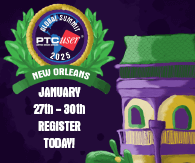Turn on suggestions
Auto-suggest helps you quickly narrow down your search results by suggesting possible matches as you type.
Showing results for
Turn on suggestions
Auto-suggest helps you quickly narrow down your search results by suggesting possible matches as you type.
Showing results for
Community Tip - Learn all about PTC Community Badges. Engage with PTC and see how many you can earn! X
IoT Tips
Labels
-
Analytics
199 -
Announcements
12 -
Ask the Expert
138 -
Best Practices
211 -
Cloud
7 -
Code Examples
40 -
Coding
62 -
Connectivity
156 -
Customer Only
2 -
Design
82 -
Developer Education
250 -
EDC
53 -
Examples
198 -
Extensions
70 -
Install-Upgrade
141 -
Mashup-Widget
83 -
Roadmap
6 -
Security
39 -
Solution Central
5 -
Troubleshooting
55 -
TWX Navigate
10
Showing articles with label Ask the Expert.
Show all articles
Featured Article
Featured Article



